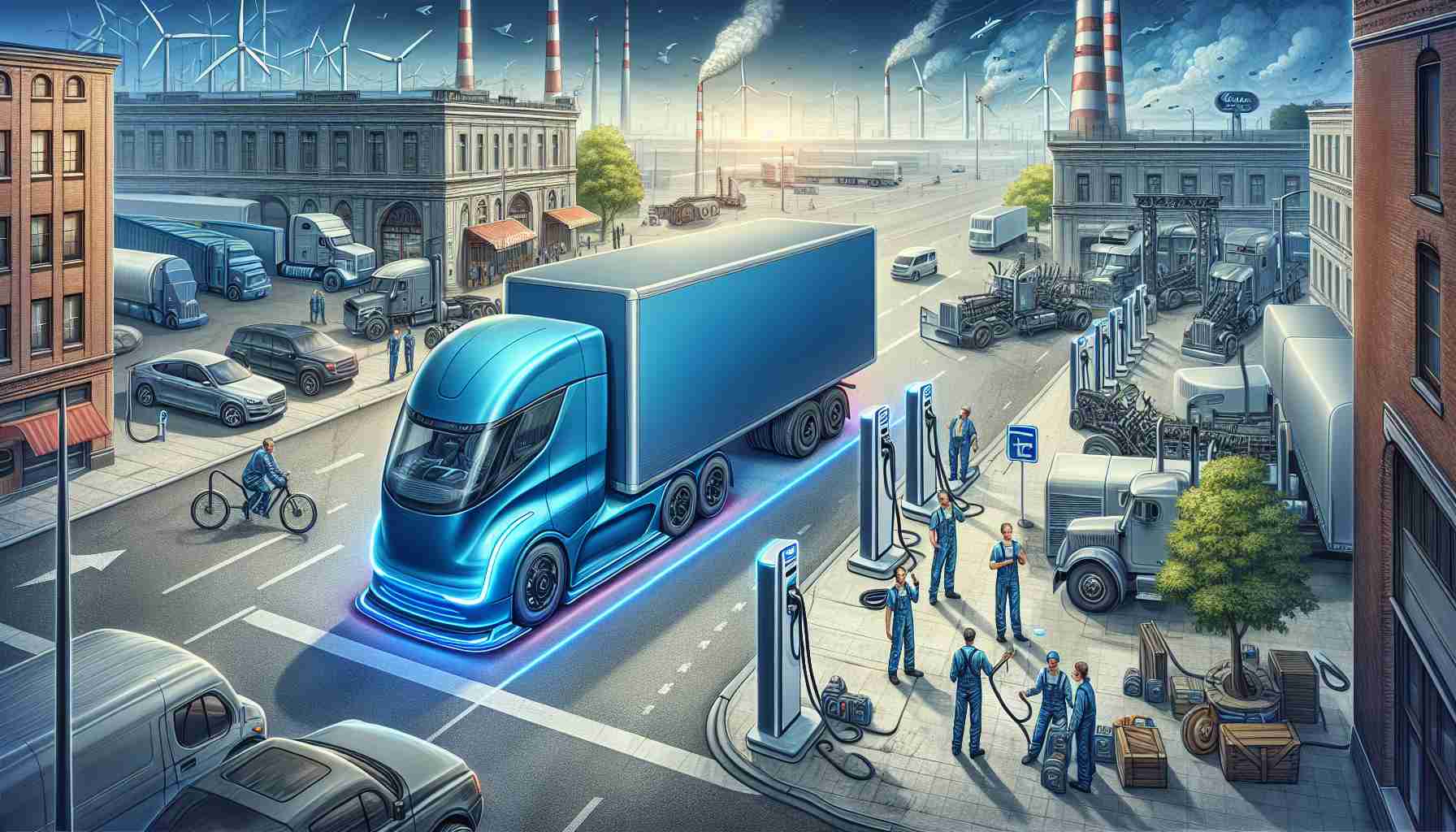A Green Leap in Logistics
In a groundbreaking move towards cleaner transport, XPO Logistics has teamed up with SKF to unveil an innovative electric tractor truck. This vehicle will enhance the efficiency of transporting SKF products in France, signaling a significant reduction in environmental impact.
The new electric truck replaces a traditional combustion engine vehicle that shuttled between XPO’s storage facility in Parçay-Meslay and SKF’s manufacturing site in Saint-Cyr-sur-Loire. With XPO overseeing logistical operations for SKF, their collaboration spans over a dedicated 6,000 m² area within a larger 24,000 m² complex, showcasing their significant logistical capabilities.
As part of an ambitious strategy, XPO plans to add 105 electric tractors and 125 electric rigid vehicles to its fleet in Europe by 2026. These modern vehicles offer the advantage of zero direct CO2 emissions, while also minimizing noise and odor concerns.
SKF is also leading efforts toward carbon neutrality in its supply chain by 2050, incorporating sustainability measures such as solar energy and biomass heating at its site. These initiatives have notably decreased CO2 emissions by 4,000 tonnes to date.
Both companies emphasize their commitment to sustainable logistics, viewing this partnership as a benchmark for environmentally conscious growth. Their shared vision not only fosters innovation but also prepares the ground for a greener future in transportation.
Driving Change: The Broader Impact of Electric Logistics
The unveiling of XPO Logistics’ electric tractor truck marks more than just a technological advancement; it symbolizes a pivotal shift in the logistics industry that could reverberate across society and the global economy. As transportation is a major contributor to greenhouse gas emissions, the transition to electric vehicles signifies a meaningful step towards achieving global climate targets. If replicated across industries, this innovation could substantially curtail the logistics sector’s carbon footprint, leading to healthier urban environments and improved air quality for communities worldwide.
Beyond environmental benefits, the move highlights the cultural shift towards sustainability in business practices. Companies are increasingly held accountable for their environmental impacts, and stakeholders, including consumers and investors, are prioritizing sustainability. This trend can drive a competitive market for eco-friendly technologies, fostering innovation and economic growth in green tech sectors.
On a macro level, as the logistics industry adapts to electric solutions, it could lead to significant changes in supply chain dynamics and workforce training. Investments in electric vehicle infrastructure and maintenance require a skilled labor force, potentially creating new job opportunities and redefining traditional logistics roles.
In the long term, if electric logistics strategies are embraced broadly, they could trigger a much-needed transformation in global transportation networks. This shift would not only enhance operational efficiencies but could also support the broader economic landscape by aligning with international climate agreements and nurturing a sustainable global economy.
Transforming Transportation: XPO Logistics and SKF Lead the Charge with Electric Solutions
A Green Leap in Logistics
The logistics industry is undergoing a paradigm shift as major players prioritize sustainability and environmental responsibility. A notable example is the partnership between XPO Logistics and SKF, which recently introduced an advanced electric tractor truck to improve the efficiency of transporting SKF products in France. This innovative vehicle is expected to significantly lower the carbon footprint associated with logistics operations, marking a pivotal move toward cleaner transport solutions.
Features of the Electric Tractor Truck
The electric tractor truck replaces a conventional combustion engine vehicle that previously facilitated transport between XPO’s storage facility in Parçay-Meslay and SKF’s manufacturing site in Saint-Cyr-sur-Loire. This transition not only showcases the technological advancements in electric vehicles but also highlights the collaborative efforts between logistics and manufacturing sectors to embrace sustainability.
Future Plans and Innovations
XPO Logistics has ambitious plans for the future. By 2026, the company aims to expand its fleet by adding 105 electric tractors and 125 electric rigid vehicles across Europe. These electric vehicles will be indispensable in achieving zero direct CO2 emissions, thus making significant strides toward reducing overall ecological impact.
Sustainability Initiatives by SKF
SKF is also extending its commitment to environmental stewardship beyond fleet electrification. The company aims for carbon neutrality in its supply chain by 2050. To meet this goal, SKF is implementing various sustainability measures, such as utilizing solar energy and biomass heating at its manufacturing site. These initiatives have already resulted in a remarkable reduction of 4,000 tonnes of CO2 emissions to date.
Pros and Cons of Electric Logistics Solutions
Pros:
– Reduced Emissions: Electric vehicles offer zero direct CO2 emissions, facilitating greener transportation.
– Lower Noise Pollution: Electric trucks operate much more quietly than their combustion counterparts, contributing to a more pleasant urban environment.
– Cost Efficiency: Over time, electric vehicles can result in lower fuel and maintenance costs.
Cons:
– Limited Range: Electric trucks may have a shorter range compared to traditional trucks, necessitating careful planning of routes.
– Charging Infrastructure: The need for robust charging infrastructure can be a barrier to widespread adoption.
Market Trends and Predictions
As global awareness of climate change intensifies, the logistics industry is expected to increasingly adopt electric vehicles. Innovations in battery technology and charging capabilities will likely propel this trend, making electric trucks more viable and attractive for logistics companies. Analysts predict that, by 2030, electric vehicle adoption in logistics could reach unprecedented levels, fundamentally changing how goods are transported around the world.
Conclusion
The collaboration between XPO Logistics and SKF showcases a significant stride toward sustainable logistics practices. By investing in electric vehicles and adopting eco-friendly operational strategies, both companies are setting a positive example for the industry. The focus on reducing carbon emissions not only helps combat climate change but also positions these companies as leaders in the transition towards a greener and more sustainable future in transportation.
For more insights on sustainable logistics, visit XPO Logistics or SKF.
